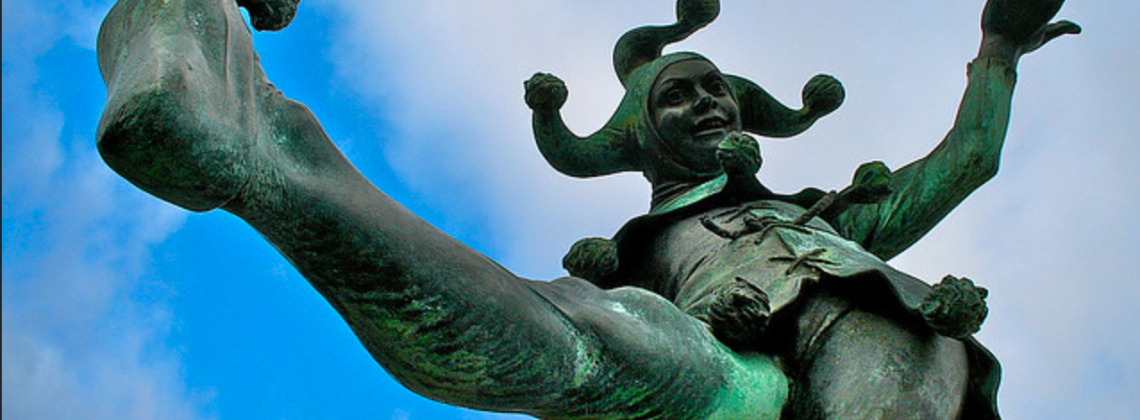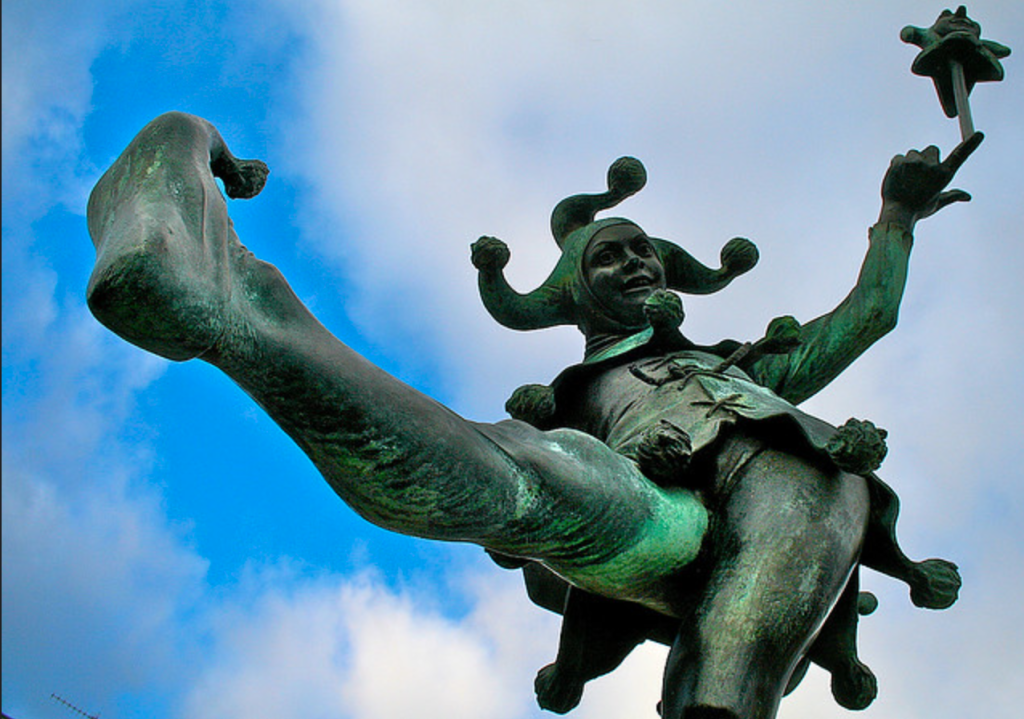

A reflection on faith
In his short book Dynamics of Faith, Paul Tillich defined faith as the “total surrender to the subject of ultimate concern.” It is the “most centered act of the human mind.”
By this definition, Americans are people of deep faith. As we approach the 250th birthday of the United States in 2026, I can say with confidence that the people of my country have surrendered to their ultimate concerns.
As capitalists, we have a deep and abiding trust in financial markets. We believe that the economy, complete with the conspicuous consumption that fuels it, will be our salvation. We stare at the bottom of our screens as the ticker streams by, praying fervently that this will be the day the gods of the Dow perform their magic and bestow us with blessings.
But the prophet Adam Smith has only heard the prayers of a few. The invisible hand has done little to prevent inequality, instability, and environmental degradation. As historian Eugene McCarraher writes in Enchantments of Mammon: How Capitalism Became the Religion of Modernity, we worship at the throne of “capitalism’s ontology of pecuniary transubstantiation, its epistemology of technological dominion, and its morality of profit and productivity.” These gods have few answers when the pandemic comes, or when Black men and women are killed in the streets, or when we give birth to children who will live in a world that is becoming more uninhabitable by the year.
As constitutionalists, we believe in the Bill of Rights. These rights are sacred, we are told, because Thomas Jefferson said they have been “endowed by our Creator.” The founding fathers—that great cloud of witnesses whom the sage of Monticello called “an assembly of demigods”—taught us to defend these rights to the point of martyrdom. We have been dutiful disciples of this rights-based faith to the point that we no longer take seriously the needs of our fellow human beings. Wear a mask or social distance? Tyranny! Preserve the life of a baby in the womb? Do not take away my right to choose!
As nationalists, both at home and abroad, we bow to the gods of “America First” and “Make America Great Again.” While the world mocks our claims of exceptionalism and global arrogance, we drape ourselves in the flag, build walls, and celebrate empire. We genuflect before the military, use our power to protect American economic interests around the world, call ourselves an “indispensable nation,” and then wonder why terrorists attack. We ignore the lessons of history at our own peril. We claim we are a Judeo-Christian country but disregard the wisdom of Proverbs 16:18: “Pride goes before destruction, a haughty spirit before a fall.”
Americans have always had, and continue to have, an unshakeable faith in the god of improvement. We have drunk deeply from the wells of Enlightenment optimism and inaugurated a secular eschatology through our pursuit of personal ambition, education as a means of social climbing, and scientific dabbling with the integrity of the human person. We hope for a utopia—a land with no limits where the superstitious belief in original sin and the antiquated notion that the world is broken will one day be overcome by new discoveries and advances in knowledge. This is a paradise without death or judgment.
We march upward and onward, but our faith does not take us anywhere. As Tolstoy’s narrator says of Ivan Ilych, “He performed his official task, made his career, and at the same time amused himself pleasantly and decorously.” Is this all we can expect from our pursuits of happiness: pleasantries, politeness, and comfort? Our anxieties lead us in unprecedented numbers to the psychologist’s couch and the pharmacist’s counter.
I have spent the better part of a career teaching about American faith. I’ve also committed myself to the project of explaining the difference between American faith and Christian faith. Christian faith is something altogether different from our fidelity to American creeds and ideals, although it does not always appear that way when so-called “Christian leaders” speak in public. Tillich tells us that “idolatrous faith” is still faith, but it is “demonic,” “ultimately destructive,” and will always lead to “existential disappointment.”
From the Christian point of view, faith ceases to be heretical and becomes life-giving when we surrender to God as our ultimate concern. Tillich illustrates this kind of spiritual capitulation with the first part of the Jewish Shema; “You shall love the Lord your God with all your heart and with all your soul and with all your might” (Deuteronomy 6:4). Faith is radical trust in a God who created the world and sustains it. All the myths and narratives we use to order our lives, including the ones we celebrate in acts of American patriotism, must be subordinated to the story that God is telling about the world. Anything less is idol worship.
Is this kind of faith irrational? Yes. Faith cannot be transformed into something intellectually respectable. As a result, true believers will always be outcasts and strangers. The power brokers might pay lip service to people of faith when they find common ground with them on certain social or political matters, but the guardians of modernity will always hold the true believer at arm’s length because genuine Christian faith is scandalous, outrageous, and offensive.
Faith bids us come and die. Therefore, it always demands courage. But it also requires meekness. People of faith do not respond to power with more power. They do not seek revenge. They do not delight in war—either militarily or culturally. Instead, they inhabit lives of submission to God and trust that he will make things right.
There is a difference between “faith” and “belief.” While so-called “statements of faith” are important for defining the spiritual ideas and values for which we are called to come and die, faith is something more than intellectual assent to a set of concepts. We should not confuse it with doctrinal pronouncements. Such confusion, as Christian writer Peter Enns warns us, leads to the “sin of certainty.” Faith is more than the mere guarding of theological fortresses, a type of religious “sentry duty” that announces who’s in and who’s out. This is not the kind of faith that leads us to press on through the dark night of the soul. It does not move mountains (Matt. 17:20).
During the ambiguity and pain that come with any long pilgrimage, faith summons us to speak, write, and engage the world as agents of reconciliation, defenders of life, lovers of neighbors and enemies, sufferers with the poor, and stewards of creation. As Dietrich Bonhoeffer wrote, “The world dreams of progress, of power and of the future, but disciples meditate on the end, the last judgment, and the coming kingdom. To such heights the world cannot rise. And so the disciples are strangers in this world, unwelcome guests and disturbers of the peace.”
The life of faith is the life of foolishness. As the apostle reminds us, God chooses “what is foolish in the world to shame the wise” and what is weak to “shame the strong” (1 Cor 1:27).
Singer-songwriter Michael Card explains it well in his song “God’s Own Fool”:
So come lose your life for a carpenter’s son
For a madman who died for a dream
And you’ll have the faith His first followers had
And you’ll feel the weight of the beam
So surrender the hunger to say you must know
Have the courage to say “I believe”
For the power of paradox opens your eyes
And blinds those who say they can see
So we follow God’s own fool
For only the foolish can tell
Believe the unbelievable
Come be a fool as well
I believe; Lord, help my unbelief.
John Fea is Executive Editor at Current. This piece is an abridged version of an essay published previously at Syndicate Network.
Thanks, John for this excellent reminder of how profoundly counter-cultural the Gospel is –now more than ever, I believe. And that song of Michael Card’s has enormous significance for me. I remember hearing it as a grad student back in the 1990s, and the magnetic spiritual power to draw me back to the faith.